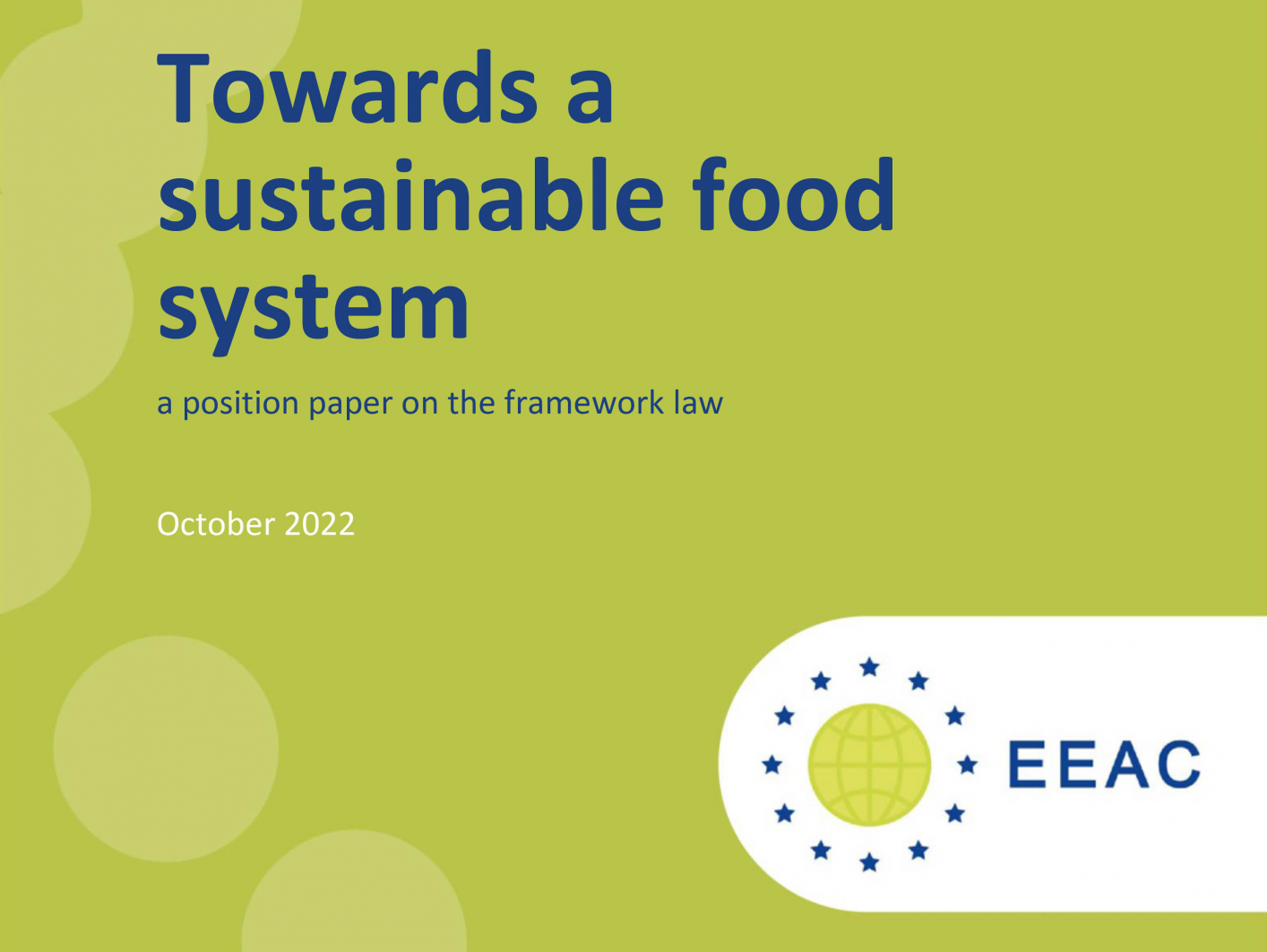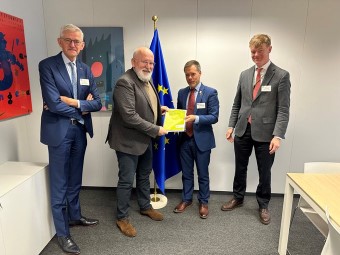
In response to the European Commission’s proposal, the Dutch Council for the Environment and Infrastructure (Rli), together with several fellow European councils, issued a position paper on 31 October 2022 on several key aspects of this forthcoming framework law.
Background and request for advice
In May 2020, the European Commission presented its ‘farm to fork’ strategy. In this strategy, the Commission announced special legislation: a framework law for sustainable food systems. This framework law should contribute to increased coherence in the food system, from food production to consumption, as well as the socio-economic and environmental outcomes of all these activities at both European and national levels.
The European Commission started preparing the framework law in 2022. This prompted a group of advisory councils, with Rli council member Krijn Poppe as rapporteur, to draw up a position paper addressed to the European Commission and EU member states, in the context of the European Environment and Sustainable Development Advisory Councils Network (EEAC Network), on some key aspects of the upcoming framework law.
Notes
European society and its food system face a triple challenge: 1) ensuring a healthy diet for all; 2) mitigating and adapting to climate change; and 3) protecting and restoring habitats for their biodiversity and ecosystem services. Effectively addressing this triple challenge in the complex context of the European food system requires a systems approach. The framework law that has been announced is necessary for this purpose. In their position paper, the councils consider five key aspects of this upcoming framework law:
1. General principles
The councils argue that the general principles of the law should help ensure that the strong innovative capacity of actors in the food chain is no longer used to achieve ever lower food prices. Instead, their innovative capacity should be harnessed to accelerate the transition to sustainable agriculture, food processing and food consumption.
In addition, the advisory councils advocate that the framework law contributes to an equitable transition to a sustainable food system. If necessary, cost increases for consumers should be offset by income tax measures, the minimum wage or social security, for example. Falling incomes on the producer side should be met, if necessary, by direct income support and payments for public services. This calls for consistency between EU policies for sustainable food systems in the single market and social and fiscal policies in the member states.
2. Certification and labelling
Certification and labelling are important tools that the framework law can use. Certification should allow classification of farms and food as more or less sustainable. This supports benchmarking and price differentiation, for example, enabling sustainable action in the chain to be rewarded through actions such as public contracts, support in the land market and/or the allocation of advisory capacity. Implementing a certification system should and can be done quickly. Further digitalisation in the food chain can boost certification while reducing administrative burdens. Labelling can then help in further developing a market for sustainable products and strengthening the information position of actors throughout the food system.
3. Policy instruments to encourage actors in the food system
The framework law should target all actors in the food system and the position paper develops recommendations for the various actors. These recommendations assume a system of certification and labelling. For example, food processing companies and retailers could be asked to include the sustainability aspects of their procurement in their ESG reporting, and the government could use certification and labelling to implement procurement policies that encourage demand for sustainably produced food.
The councils recommend using other instruments besides certification and labelling to encourage actors in the food system to help make the system sustainable. VAT regulations could be changed, for instance, so that animal products are taxed more heavily than, say, products with a lower carbon footprint and/or health benefits, such as fruit and vegetables. Furthermore, the councils recommend not exempting the food system (including agriculture) from instruments such as an economy-wide carbon tax.
4. Monitoring food system policy
The Framework Law should ensure that monitoring is based on data describing the sustainability of the entire system, including the behaviour and sustainability performance of different categories of actors in the value chain. Proper monitoring should help underpin the food system policy debate with facts, according to the advisory councils.
It is also important to measure all sustainability indicators in an integrated way, and to collect them using a methodologically sound approach that can be audited. Such an approach should provide insights that can be used to see the effects of policy measures on farms, including unforeseen trade-offs.
5. Governance
To effectively manage the European food system, and properly coordinate current policy, the councils recommend setting up a coordination group that includes European Commissioners whose DGs are involved in food systems in a broad sense. In addition, a coordination mechanism should be established between the European Commission and national ministries to coordinate actions and measures. This mechanism should work across all policy areas (such as agriculture, fisheries, environment, competition, and health and social policy). Member states should also develop comprehensive national strategic plans for sustainable food systems, including social measures for an equitable transition.
Publication date and online public meeting
The position paper was issued on 31 October 2022 and presented and explained to European Commission Executive Vice-President Frans Timmermans in December 2022 by a number of EEAC network delegates, including Rli Council member Krijn Poppe. In addition, the EEAC Network, in cooperation with the Permanent Representation of the Netherlands to the EU, organised a meeting in Brussels on 2 February 2023. The position paper’s findings were discussed with national and international invitees.
Various councils also brought the paper to the attention at national level. In the Netherlands, Rli Chair Jan Jaap de Graeff and Council member Krijn Poppe presented the position paper in the executive committee of the Ministry of Agriculture, Nature and Food Quality.

Pictured from left to right are Krijn Poppe (Rli Council member and author of the position paper), Frans Timmermans (Executive Vice-President of the European Commission for the Green Deal), Arnau Queralt Bassa (Chair of the EEAC Network), Jan Verheeke (Chair of the Working Group on Ecosystem Services, EEAC Network).
Information or response
If you wish to respond or would like more information, please contact Folmer de Haan, project manager,f.w.dehaan@rli.nl, +31 (0)6 4615 2496